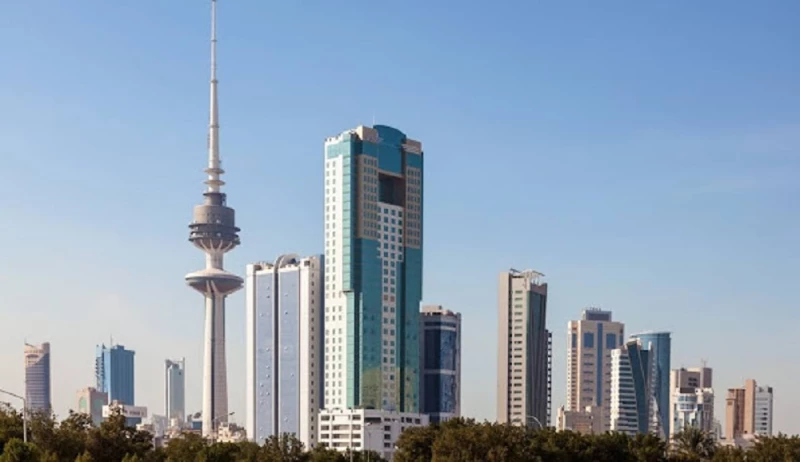Kuwait has suffered a setback in economic quality during the past decade by 21 places, while its best performance was in 2014, according to the National Center for Development Research of the General Secretariat of Planning. An analysis of Kuwait's prosperity by the National Center noted that gross domestic product is a standard for measuring economic prosperity (prosperity is measured and determined according to its national income), but if you are trying to understand the real added value of participants in the economy, it can be the GDP that gives a distorted picture, especially in countries with high resource rents.
It was explained in the report that resource rents may cause an arithmetic imbalance in GDP figures, which can mislead the public about the quality of an economy. According to the 2019 Global Prosperity Index report, Kuwait has resource rents that contribute more than 25% to its GDP, and it may appear Kuwait is wealthy, but its workforce is relatively unproductive economically. Kuwait experienced a significant decline in the quality of its economy from after 2019 until now, according to the report, as oil-producing countries, in general, and Kuwait, in particular, faced a double crisis at the beginning of 2020, when the Coronavirus pandemic coincided with a drop in oil prices on the international market, which affected Gulf oil states' economies. The Gulf countries were negatively affected by the crisis, and this was evident in the public budget deficit, the layoff of large numbers of expatriates, the reduction of public expenditures, austerity measures, and the tendency to external debt through international bonds. According to the report, Kuwait was experiencing a more severe economic crisis than other Gulf countries like the UAE and Qatar.
Kuwait faced the most prominent crisis in the last months of 2020 in providing liquidity for salaries of workers in the public sector. The report stated that several indicators indicate the existence of a real crisis at the financial and economic levels in Kuwait, including what was published by Fitch in early February 2021, about reducing the credit rating of Kuwaiti debts from stable to negative, and the agency said that the reduction of Kuwait’s sovereign credit rating reflects the restrictions in the ongoing political decision-making, which impedes addressing the structural challenges related to oil dependence, the generous prosperity state and its large public sector.
A further ambiguity was created by the statements of the Minister of Finance, as he said the country's Treasury was almost out of liquidity, and as for Kuwait's budget for the fiscal year 2020/2021, the deficit reached 46 billion dollars, while in Qatar, the deficit reached 9.5 billion. In the UAE, the deficit reached 1.3 billion dollars. Over the past decade, Kuwait has advanced 39 places in the business environment pillar, and its best performance was in 2021 with 57.4 out of 100. Throughout Kuwait's history, the state has made radical changes to its laws and legislation to enhance the business environment and the business environment within the framework of its National Vision 2035. By doing so, Kuwait has improved the investment climate, increasing the effectiveness of the economy and creating real job opportunities for Kuwaitis. It was stated in the report that trade can flourish in markets with adequate infrastructure and few barriers to doing business, leading to more competition and efficiency. This allows for the testing, financing, and marketing of new products and ideas, which ultimately benefits consumers by offering a wider selection of goods at a more competitive price.

 Kuwait Implements Home Biometrics Services Ahead O...
14 April 2024
Kuwait Implements Home Biometrics Services Ahead O...
14 April 2024 Kuwait Airways Provides Update On Flight Schedule...
14 April 2024
Kuwait Airways Provides Update On Flight Schedule...
14 April 2024 Kuwait Airways Introduces Convenient Home Luggage...
15 April 2024
Kuwait Airways Introduces Convenient Home Luggage...
15 April 2024 Expat Residency Law Amended By Kuwait Ministerial...
20 April 2024
Expat Residency Law Amended By Kuwait Ministerial...
20 April 2024 Two Expats Are Arrested For Stealing From Salmiya...
17 April 2024
Two Expats Are Arrested For Stealing From Salmiya...
17 April 2024 Kuwait Airways Resumes Flights To Beirut And Oman...
15 April 2024
Kuwait Airways Resumes Flights To Beirut And Oman...
15 April 2024 Temperature Increases Cause Electricity Load Index...
21 April 2024
Temperature Increases Cause Electricity Load Index...
21 April 2024 Thief Returns Stolen Money With An Apology Letter...
15 April 2024
Thief Returns Stolen Money With An Apology Letter...
15 April 2024 3 Expats Caught In Salmiya With 213 Bottles Of Loc...
23 April 2024
3 Expats Caught In Salmiya With 213 Bottles Of Loc...
23 April 2024 Ministry Of Interior Denies Social Media Rumors Re...
13 April 2024
Ministry Of Interior Denies Social Media Rumors Re...
13 April 2024











Comments Post Comment